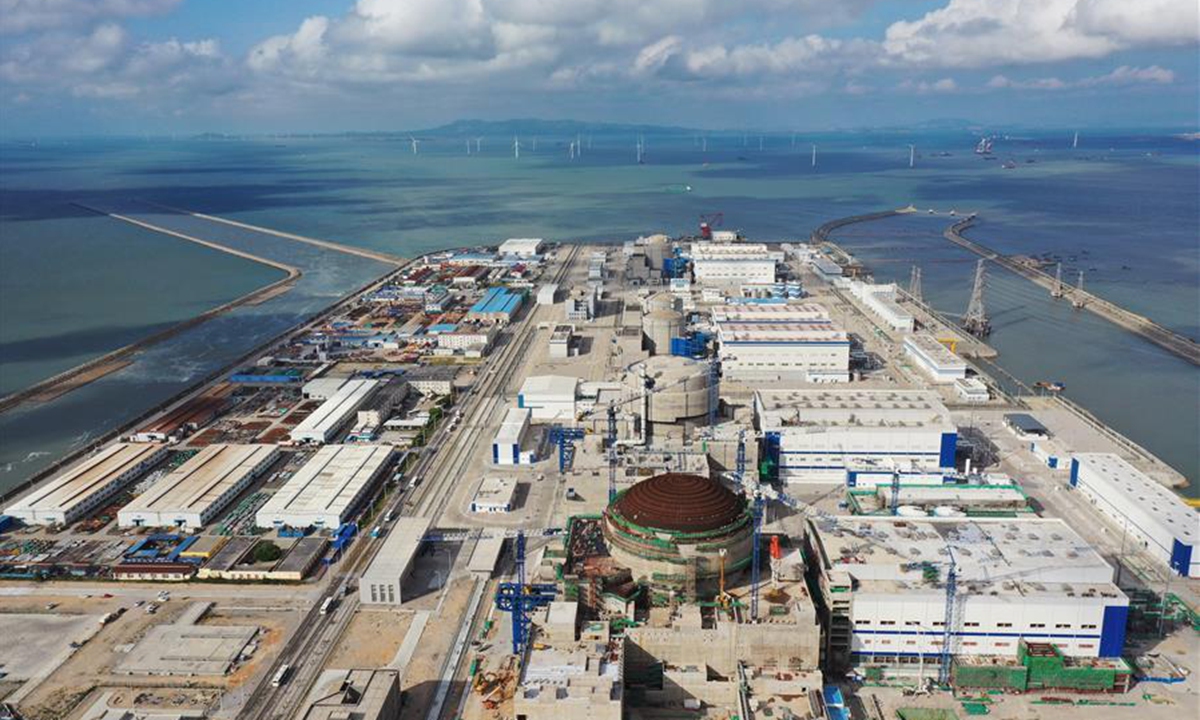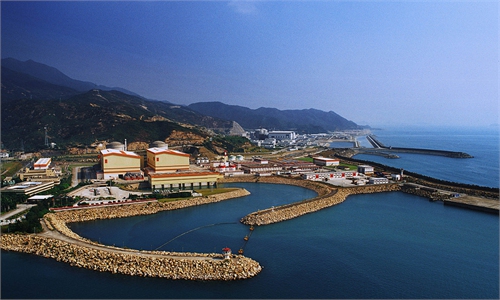China’s CGN to expand overseas nuclear power projects despite reported UK ousting plan

Aerial photo taken on Aug. 31, 2020 shows a panoramic view of Fuqing project in the city of Fuqing, southeast China's Fujian Province. Fuel loading started Friday at China's first nuclear power unit using Hualong One technology, a domestically developed third-generation reactor design, bringing the unit one step closer to operation. Photo: XinHUA/Guo Donghai
A senior executive of China's nuclear power conglomerate China General Nuclear Power Corp (CGN) told the Global Times on Monday that there should be no security or economic problems regarding the global nuclear power development and Chinese professionals are able to address certain issues, in responding to a reported plan by the UK to oust the Chinese firm from a major project.
In an interview, Li Yilun, senior vice president of CGN, also said that the company will further expand investment in overseas nuclear power projects, particularly in countries and regions along the Belt and Road Initiative (BRI).
Several media reports said at the end of September that the UK was closing in a deal to take a stake in the $27.4 billion project to build the Sizewell C nuclear power station in Suffolk - a move that would remove CGN from the project. CGN holds a 20 percent stake in the project, which also involves France's EDF.
Commenting on the media reports, Li said that "the development of nuclear power is definitely a global choice, and it should be pointed out that there are no problems in terms of safety and economy. You should have confidence in Chinese technology. Chinese nuclear power professionals have the ability to address certain issues."
Speaking to the Global Times on the sidelines of the 1st BFA Global Economic Development and Security Forum in Changsha, Central China's Hunan Province, on Monday, Li also said that the company would increase investments in overseas projects.
CGN is cooperating with France and also working on nuclear power plant projects in the UK, said Li. Meanwhile, as part of the broad trend for green development, the company is also cooperating with countries especially along the BRI, including Egypt, Bangladesh and the United Arab Emirates, on the deployment of not just the nuclear energy but also other clean energy sources such as wind and photovoltaic power.
CGN's global installed capacity has not yet exceeded 100 million kilowatts, but by the end of the 14th Five-Year Plan (2021-25) period, it will definitely break through this number. By the end of the 15th Five-Year Plan (2026-30) period, the company's installed capacity is expected to exceed 200 million kilowatts, according to Li.
Nuclear power installations in China have been expanding amid the country's ramped-up efforts in the transformation to green energy.
As of the end of December 2020, China had 17 nuclear power units under construction, and the capacity of assembled machines under construction has remained the world's largest for many years.
China's nuclear power generation technology is very mature at the global level. Take the Daya Bay Nuclear Power Station in South China's Guangdong Province as an example. So far, the station has achieved safe operation for more than 10,000 days, with a cumulative power supply of over 380 billion kilowatt hours, and the equivalent emissions reduction effect is equivalent to planting about 900,000 hectares of forest, media reports said.
While nuclear power still takes a relatively low level - about 5 percent - of China's electricity structure, in line with industry data from January to August, a strong rising trend is expected in the near future.
Li said that the proportion of nuclear power generation in green energy will be further increased year-on-year, and so will the company's overseas investment.


